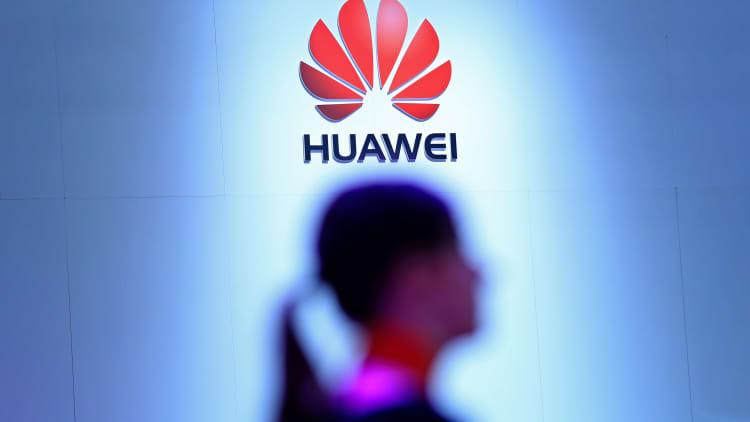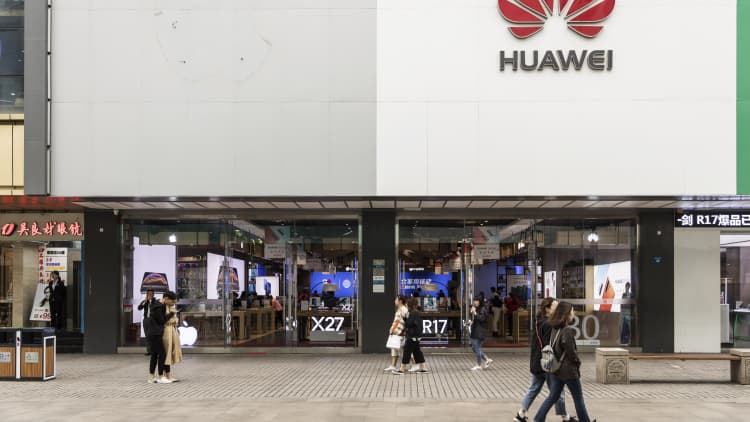A decade-long disconnect between the U.S. government and Huawei came to a head with President Donald Trump's executive order and emergency declaration this week.
The U.S. has insisted the company and its equipment are pervasively unsafe. Huawei has long requested a process through which it could prove the contrary. European nations, the company has said, use a risk-mitigation process, and Huawei has flourished there. The U.S. has refused, saying big-picture questions about the company's risk go beyond anyone's ability to test it.
Here's what has led the U.S. and Huawei to this point, according to two professionals who have spent much of their careers on the forefront of this debate – and why the issues between the two sides may be intractable.

The disconnect
A risk-mitigation process for Huawei equipment, like those used in Europe, could have been simple, according to Andy Purdy, chief security officer in the U.S. for the Chinese telecom giant.
"Both Nokia and Ericsson operate with risk-mitigation agreements," said Purdy, who formerly served as a top-ranking cybersecurity official for the Department of Homeland Security. Huawei has long requested a testing protocol that matches up with those used in Europe, or for other tech companies like Nokia and Ericsson in the U.S., Purdy said.
"BAE Systems [a large government contractor] is a U.K. company. There's a process the government agencies go through to vet them," he said. "We are open to talking to the U.S. government about risk mitigation processes. Right now, the U.S. government is not willing to discuss that with us."
The absence of this process — and the continuous testing and retesting that go along with it — are the real national security risks to the U.S., not Huawei, Purdy said.
But the U.S. government, particularly its intelligence agencies, has been insistent for nearly a decade that Huawei has been in collusion with Beijing's Communist government on developing its technology, with the goal of giving it an espionage advantage.
The alleged relationship between Huawei and China's government defies the traditional risk process for two reasons, according to former Homeland Security Secretary Michael Chertoff, because the equipment is so integral to American infrastructure and because the equipment can be changed through future patches or updates.
"Here's the difference — it's not just the difference of examining the equipment and the software," said Chertoff, now head of consulting firm the Chertoff Group. "Once you embed something in the network, there are updates, patches, fixes; all of these create opportunities to affect a system," he said. This means it's not necessarily about the equipment and its risk, but a combination of the equipment and the country making it.
"It's one thing to look at the networks, it's another thing when you look at [China's] geopolitics. They want to achieve greater geopolitical power," Chertoff said.
The would-be importance of Huawei's telecom gear in the country's infrastructure is difficult to overlook, Chertoff said. It's more integral than the tech sold in the U.S. by Ericsson or Nokia, he said.
"I'm sure there are a lot of dimensions to this and even countries that are in some degree rivals, there are some areas that we can reach agreement on," Chertoff said. "But when you are dealing with core national security issues, it becomes much more difficult when it comes to critical equipment. There can be very unsound geopolitical consequences."
Specific evidence vs. common sense
One of the issues with the U.S. government's accusations against the company, which date back nearly a decade, is a lack of specific evidence backing them up, Purdy said.
"I think there is a great skepticism about the rise of China, people who are worried about national security," he said. "But people just make these bold statements [about Huawei] and they've got nothing to back it up, without authority and citation."
In many ways, Purdy is right. The U.S. government's accusations against Huawei have only this year been more clearly outlined, through court cases against the company's CFO, involving allegations of Iran sanction violations; and a trade secrets case in Seattle that had already been settled in civil court. But none of those allegations yet reaches the national security threat level outlined by the Trump administration or previous administrations.
The allegations may even be hypocritical, Purdy said, a dynamic that could be affecting the U.S. relationship with its allies.
"The U.S. used American companies in this way, as was revealed at the time of the Edward Snowden revelations. I don't think Angela Merkel has forgotten about having her cellphones monitored," he said, referring to the revelations that the U.S. had been monitoring diplomatic phone calls, and the fact that Germany has largely ignored U.S. warnings on Huawei.
Despite the lack of hard evidence presented in public, Chertoff said the government's position on Huawei — which long precedes the Trump administration — is also based on a common-sense reading of the country's political aims.
"I can't be very specific, but what I will tell you is that as a matter of common sense, there is no question there are these very big companies that are viewed [in China] as national champions," Chertoff said.
The company has been centrally cast in the trade war between the U.S. and China because it exemplifies seemingly all of the Trump administration's trade arguments at once: possibly unfair market practices, allegations of spying and intellectual property theft, and China's desire for technical dominance in the West.
Chertoff cited the Chinese government's response to the arrest of Huawei's CFO Meng Wanzhou in Canada, including the arrest of Canadian citizens in China, as an example of how the company and country appear to have close links.
"And if you are a Chinese company and you choose not to honor the suggestion of the government, that can be a problem," he said. (Huawei has repeatedly denied it would follow Chinese government orders to spy on the U.S.)
Huawei has also contended that the U.S. position is purely economic and protectionist. Chertoff didn't deny that there is an economic element to the issues, but the economic and national security concern can quickly merge when it comes to infrastructure equipment.
In Europe, for instance, Huawei has a significant marketshare in 5G equipment, and much of that equipment is far more easily upgraded only with more Huawei equipment.
"One of the economics issues is, what does that do to other companies that are competitive?" Chertoff asked. "The idea of getting Huawei to be monopolist would be almost suicidal to a country, because it's handing over the keys to the kingdom to a foreign government."



